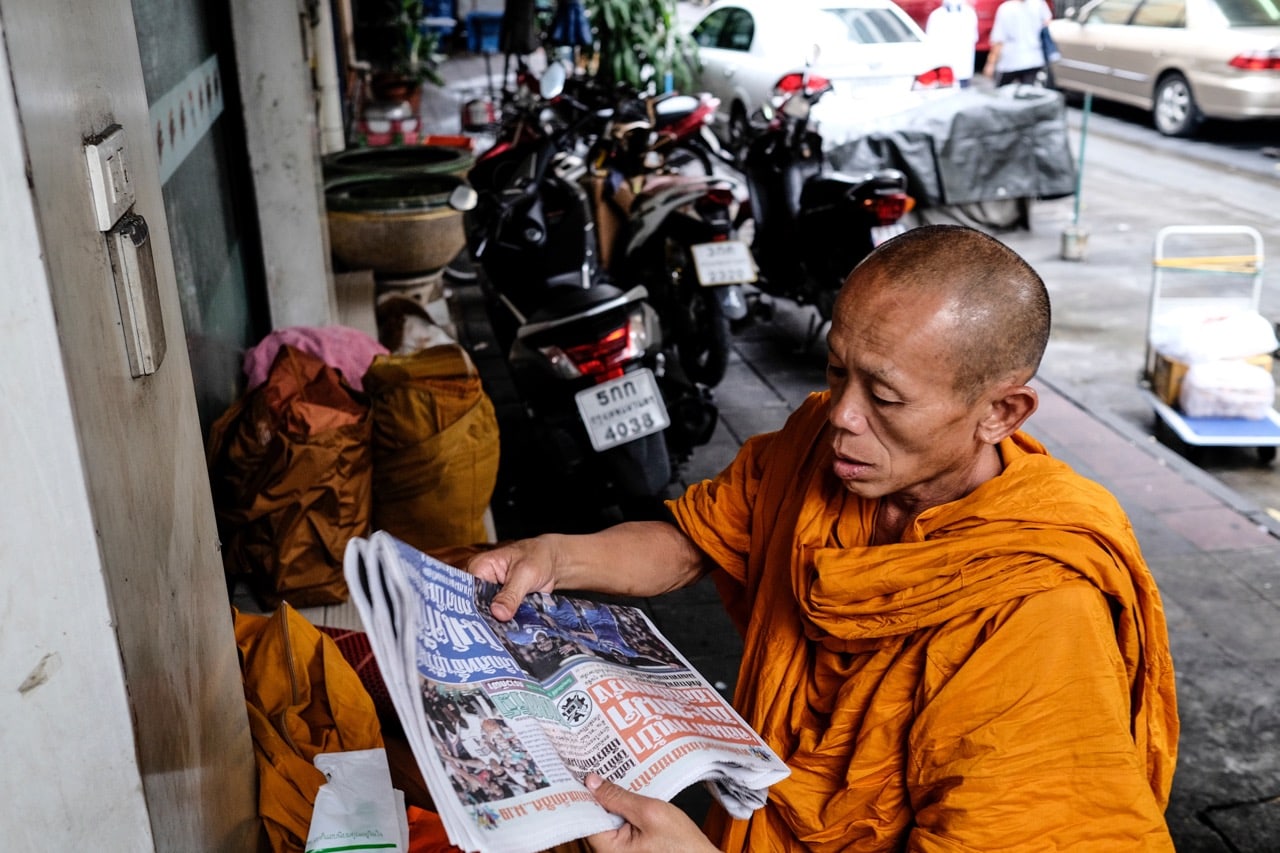The Thai Journalists Association said freedom of expression remains under threat in Thailand.
This statement was originally published on TJA’s Facebook page on 30 December 2018.
The media situation in 2018 was marked by “interference and slowdown” and the sector has a number of challenges to overcome.
Freedom of expression remains threatened by the National Council for Peace and Order’s (NCPO) special laws and the media businesses are falling on hard times thanks to disruption of technological advancements and consumers’ shift to the digital media.
The media situation in Thailand can be summed up in four points.
1. Freedom of expression is limited by the NCPO’s orders and announcements
Despite the enforcement of the 2017 charter which advocates freedom of expression and a free press, four of the NCPO’s orders and announcements restricting the media remain intact.
The four orders in question are No.97/2014, No.103/2014, Article 5 of No.3/2015, and No.41/2016. Maintaining these orders and announcements is not conducive because as the country is moving toward the general election, the public should in fact be guaranteed a free flow of information to make well-informed decisions.
2. Some draft laws are threatening freedom of the press
The government has given a green light to a number of draft laws that are worth scrutiny as they might be abused to undermine press freedom and threaten civil rights and liberties as well as individuals’ privacy.
One of them is a draft law on the promotion of media ethics and professional standards which was endorsed by the cabinet on December 18 despite a strong objection by the media organizations.
The bill is pending a review by the Council of State, the government’s legal adviser, and will be resubmitted to the cabinet for consideration.
Even though the controversial bill is unlikely to be passed by the National Legislative Assembly (NLA), it does not bode well with the principles of self-regulation and independence from state intervention.
The other bills include the cybersecurity bill aimed at increasing surveillance, preventing the publication of sensitive material, and allowing data interception and website blocking; the personal data protection bill [which outlines] what kind of customer data the regulator or the third party can use for the public interest and what should be strictly protected as personal data; the digital ID bill, under which a national digital ID company would be set up to build a digital ID platform to identify and authenticate citizens’ digital IDs.
Several issues related to these bills should be monitored closely as they may hinder freedom of expression or civil liberties.
3. Media businesses are shaken
The NCPO’s use of Section 44 in May to impose a three-year debt moratorium to help digital TV operators speaks volume about the media industry’s struggle.
Under order No.9/2018, the operators who owe the National Broadcasting and Telecommunications Commission (NBTC) billions of baht in unpaid licence fees are granted a debt relief of up to three years for the operators.
Several players in the broadcasting and print industries have been forced to undergo corporate restructuring to remain competitive and while some have decided to shut down or moved to the online platform.
In the print media, Chiang Mai News, a local newspaper which covers the northern region, has migrated to an online platform since March, while Siam Weekly, a news magazine, will publish its last issue on January 4 after 66 years.
Praew magazine, a lifestyle magazine, has switched from a biweekly to a monthly format, while Starpics, a monthly entertainment magazine, will publish its last issue in April next year after 52 years.
Thai Rath newspaper, which has the largest circulation in Thailand, has recently joined the restructuring by launching a voluntary retirement scheme.
On the broadcasting sector, the 2018 rang in with New TV channel being the first to downsize its work force, followed by Spring News channel which laid off 80 employees, sold shares and migrated some contents to NOW 26 channel.
As the year is drawing to a close, Money Channel announced it will go off air on January 1, 2019 and will focus on online content. Channel 3, one of the major broadcasting operators, offers a voluntary retirement for long-serving employees.
4. Tham Luang cave rescue coverage brings good lessons
The Tham Luang cave rescue in Chiang Rai which gained attention from people around the world has put the spotlight on the Thai media which scrambled to cover one of the most challenging operations.
Criticisms and the praise received will be used to improve the media professional standards.



